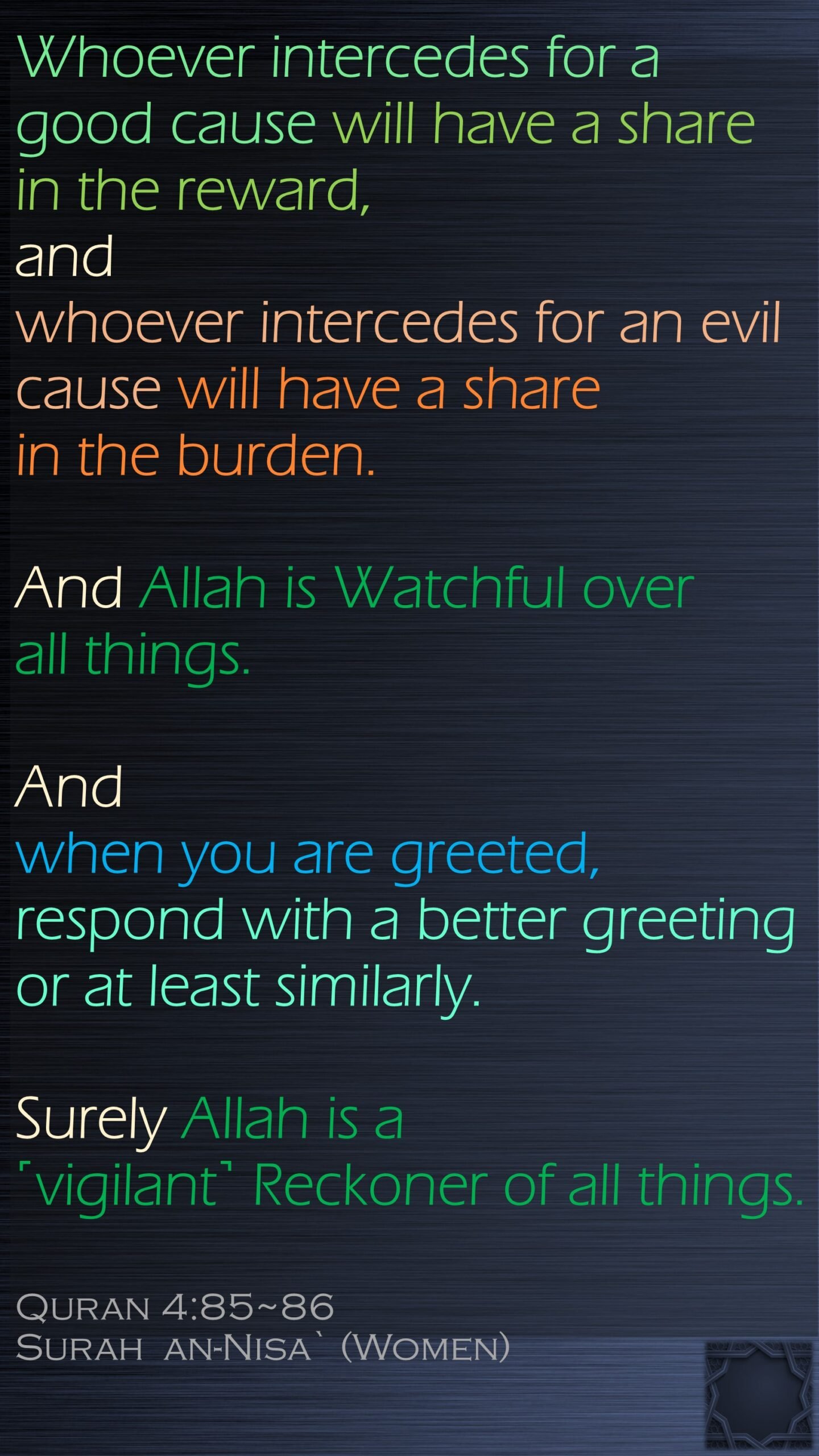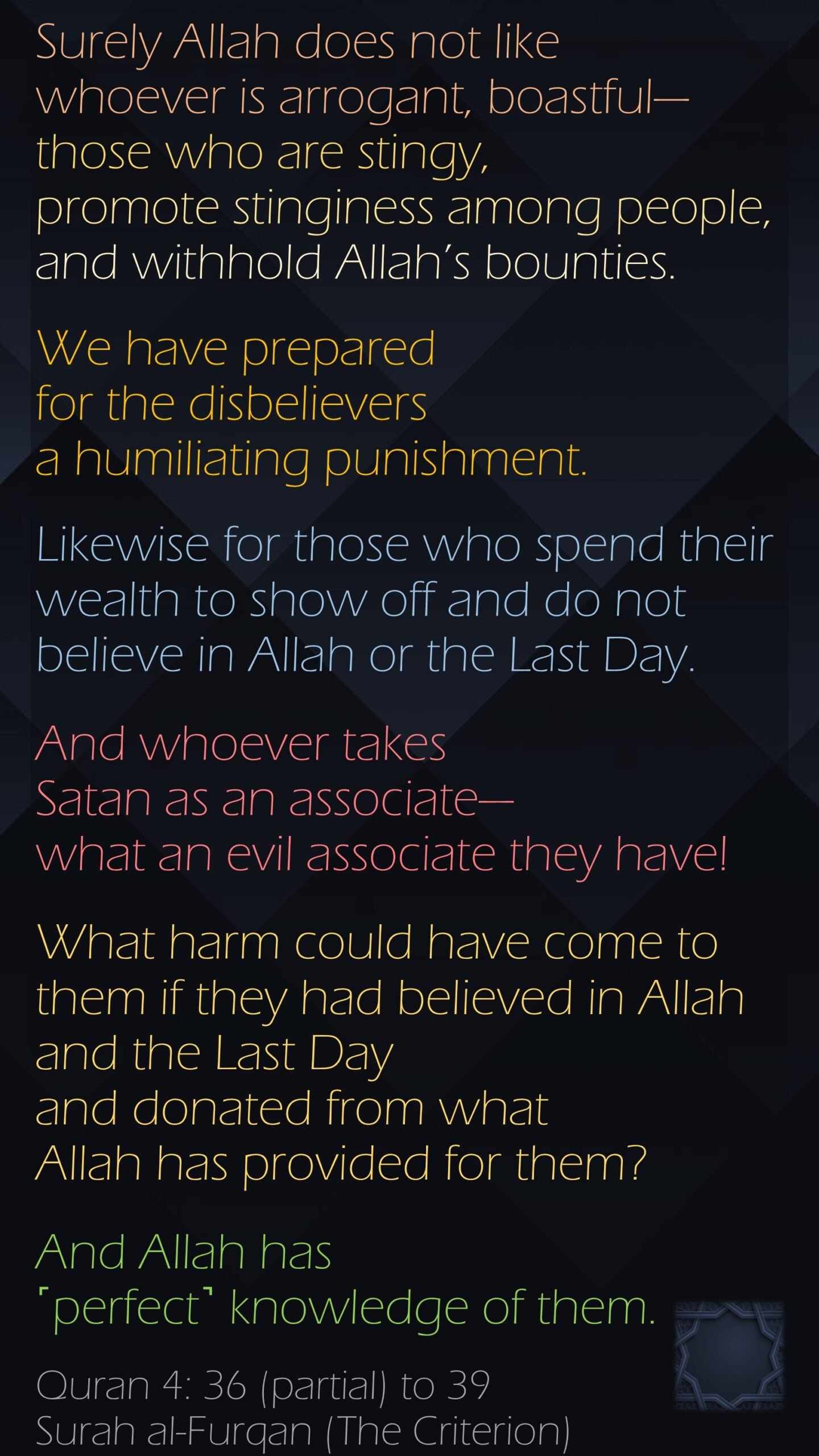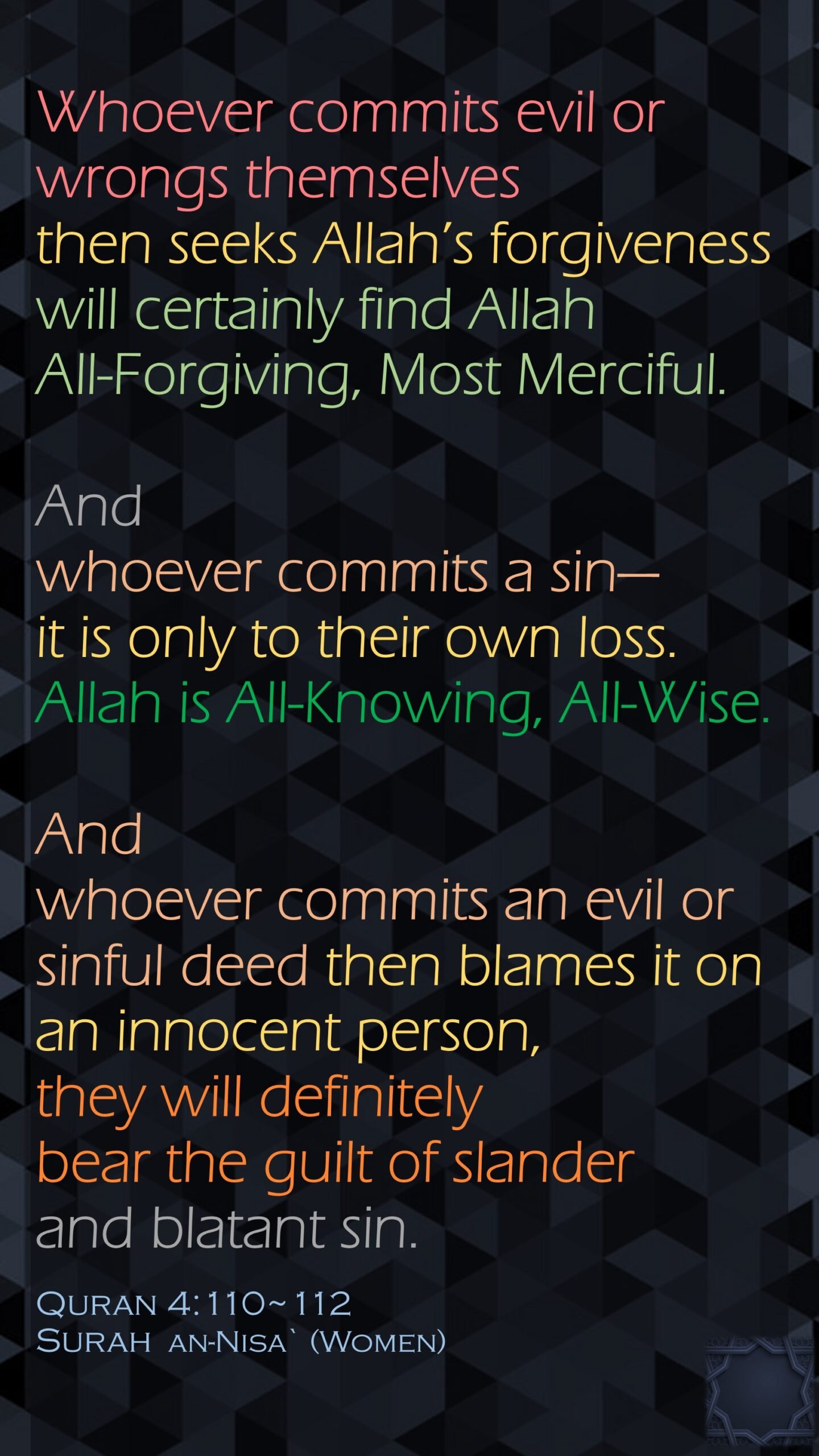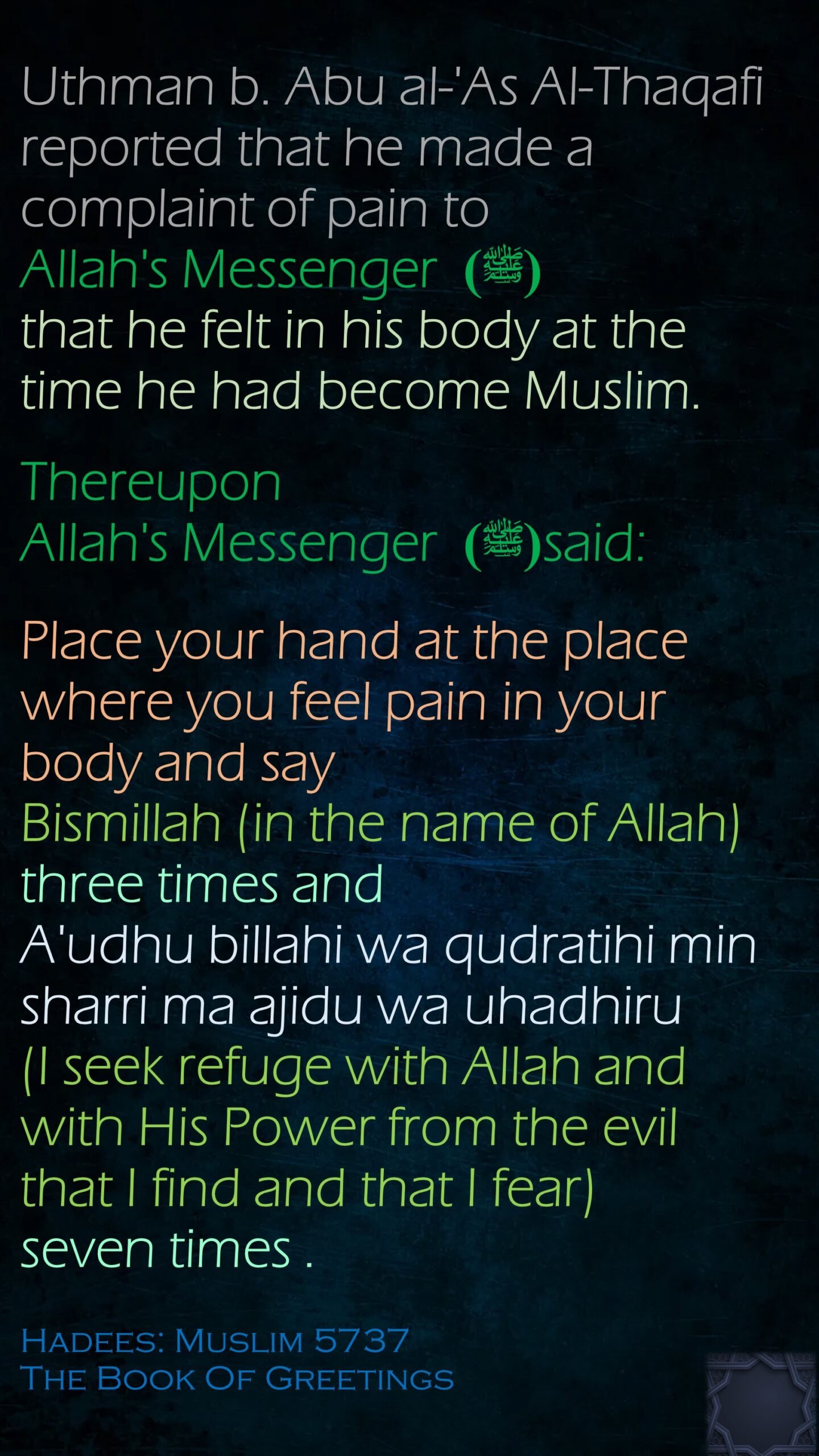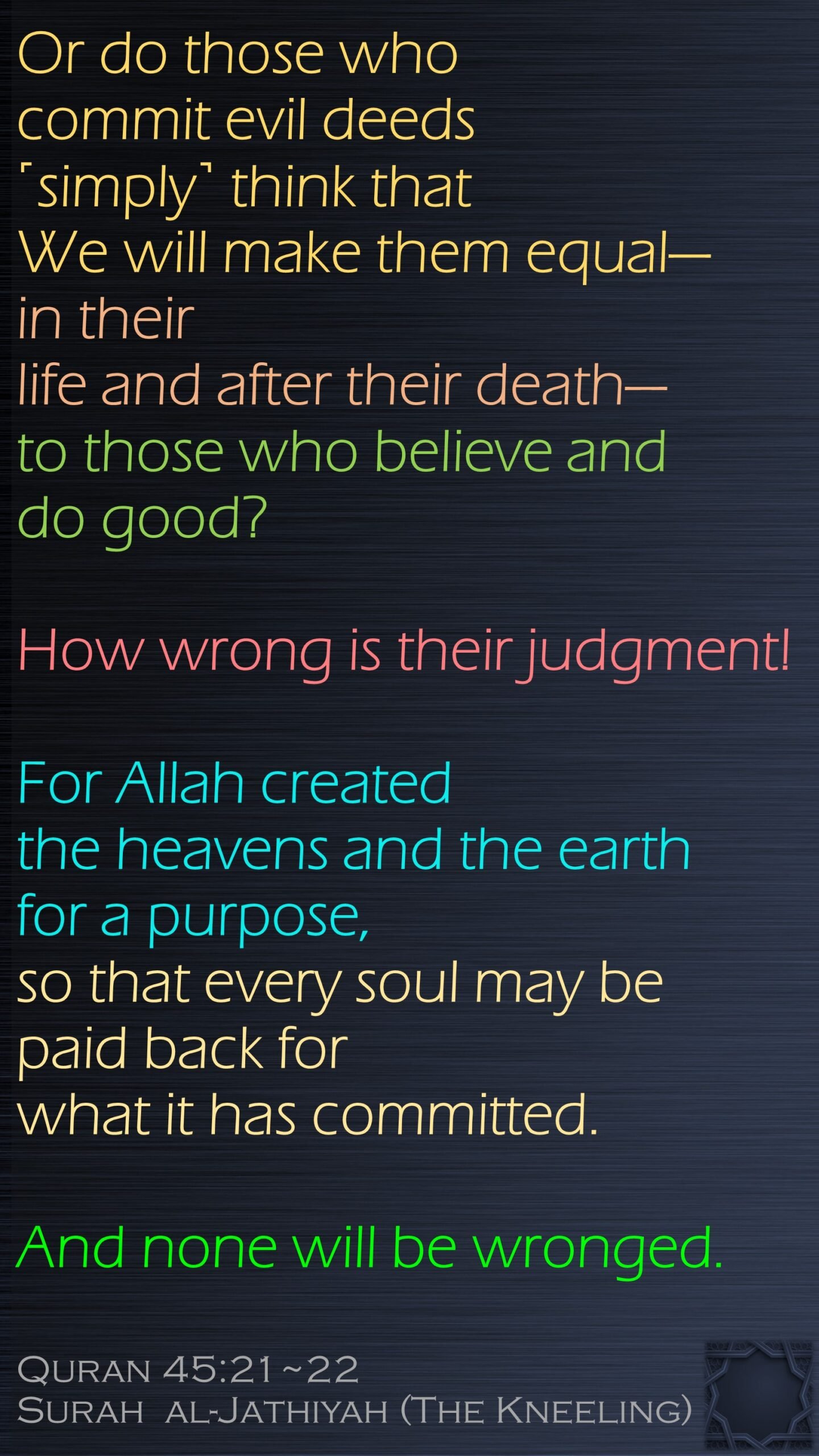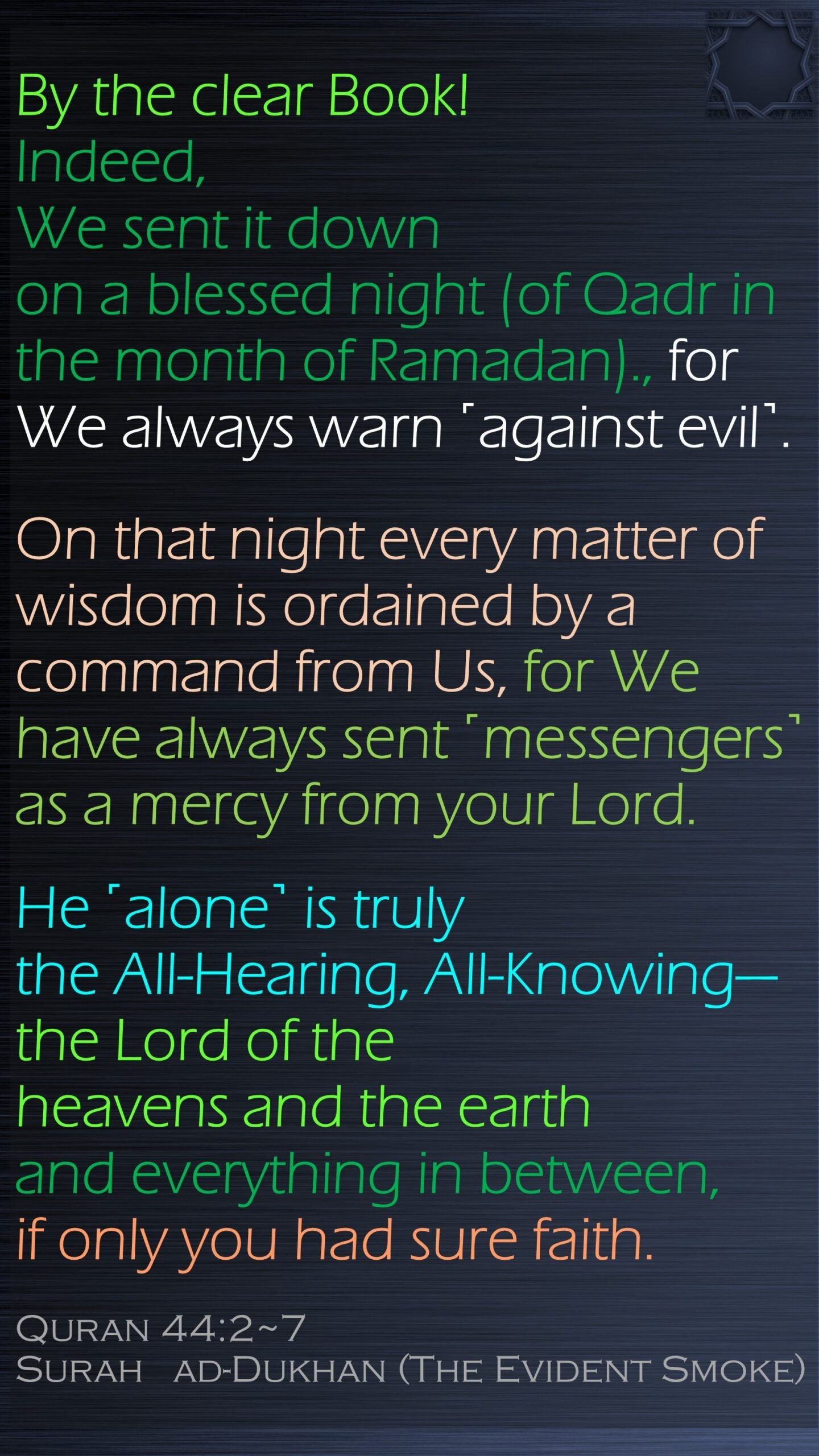17
Aug, 2024
Quran 4:85~86
Islam, Quran 004, 85, 86, all, Allah, an_Nisa, ayat, burden, cause, daily, equal, evil, evil cause, good, good cause, greet, greeted, greeting, inspirations, intercede, islam, islamic, Muhammad, quran, reckoner, reward, share, similar, Surah, tings, vigilance, vigilant, watchful, women
15
Aug, 2024
Quran 4 : 36(Partial) ~ 39
Islam, Quran 004, 36, 37, 39, Allah, An-Nisa, arrogant, associate, ayat, believe, boastful, Bounties, Bounty, daily, day, dislike, donate, evil, harm, humilate, inspirations, islam, islamic, Judgement Day, knowledge, last day, Muhammad, perfect, provision, punish, Punishment, quran, Satan, show off, spend, stingy, Surah, wealth, withhold, women
11
Aug, 2024
Quran 4:110~112
Islam, Quran All Forgiving, all knowing, All Wise, Allah, Allah's Forgiveness, An-Nisa, ayat, bear, blam, blatant, daily, evil, guilt, innocent, inspirations, islam, islamic, Most Merciful, Muhammad, own loss, quran, seek forgiveness, sin, sinful deed, Surah, the Women, wrong
23
Jul, 2024
Hadees: Muslim 5737
Hadees, Islam 5737, Allah, Allah's power, Bismillah, body, daily, evil, fear, hadees, Hand, inspirations, islam, islamic, Muhammad, pain, relief, Sahih Muslim, seven, Surah, three
17
Jul, 2024
Quran 35:8
Islam, Quran 8, all-nowing, Allah, appeal, ayat, creator, daily, deed, evil, evil-doing, Fatir, grievet, guide, inspirations, islam, islamic, leave, misguided, Muhammad, not, quran, righly guided, right, stray, Surah, will
28
Jun, 2024


